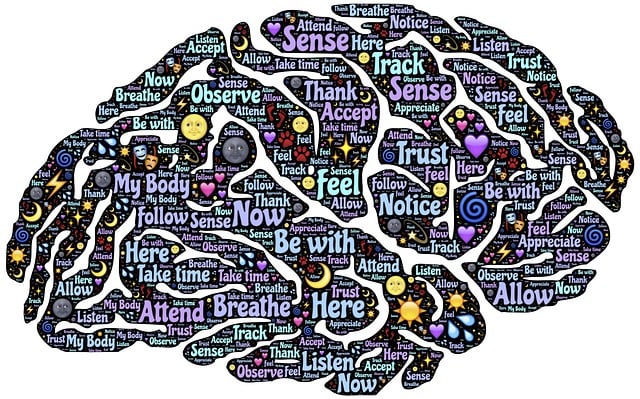Superior Russian Speaking Therapy (RST) is an innovative approach to mental well-being tailored for Russian-speaking communities, focusing on building resilience through Reliability, Flexibility, and Mastery. This evidence-based practice integrates cultural understanding with effective coping mechanisms, stress management, and conflict resolution skills, reducing stigma and improving interpersonal relationships. By addressing specific cultural needs and challenges, RST enhances treatment adherence and trust, making it a valuable tool for strengthening mental fortitude in diverse populations.
Discover the transformative power of Superior Russian Speaking Therapy as we explore its role in fostering resilience. This article delves into Understanding RFM (Resilience, Flexibility, and Mobility) and its critical part in building mental and physical fortitude. We’ll guide you through the implementation of Resistance and Resilience Training (RRT) exercises, highlighting benefits and potential challenges unique to this approach. Embrace a journey towards enhanced adaptability and strength.
- Understanding RFM and Its Role in Resilience Building
- Implementing Resistance and Resilience Training (RRT) Exercises
- Benefits and Potential Challenges of Russian-Speaking Therapy
Understanding RFM and Its Role in Resilience Building

Resilience is a key component of mental well-being, enabling individuals to navigate life’s challenges and setbacks with flexibility and adaptability. Russian Speaking Therapy (RFT), specifically tailored for Russian-speaking communities, offers unique insights into building resilience. RFT integrates cultural understanding with evidence-based therapeutic practices, addressing the specific needs and experiences of those who may face barriers in traditional therapy settings due to language or cultural differences.
The RFM model, a cornerstone of RFT, focuses on three key factors: Reliability, Flexibility, and Mastery (RFM). By fostering these dimensions, individuals can enhance their resilience. For instance, superior Russian-speaking therapy can provide a safe and supportive environment where clients learn to manage stress, develop coping mechanisms, and build self-confidence (confidence boosting). This not only empowers them to confront mental health issues but also contributes to mental illness stigma reduction efforts. Additionally, RFT incorporates social skills training, encouraging participants to practice assertive communication and improve their interpersonal relationships, further strengthening their overall resilience.
Implementing Resistance and Resilience Training (RRT) Exercises

Implementing Resistance and Resilience Training (RRT) Exercises involves a strategic approach to equipping individuals with the mental fortitude needed to navigate life’s challenges. These exercises, often rooted in evidence-based practices like Superior Russian Speaking Therapy, cater to diverse populations by fostering adaptability and coping mechanisms. By integrating RRT into therapeutic settings or personal development programs, practitioners can enhance clients’ ability to manage stress, resolve conflicts using effective communication techniques, and ultimately improve their mental health awareness.
Cultural sensitivity in mental healthcare practice plays a pivotal role in the success of RRT implementation. Tailoring exercises to respect and incorporate cultural nuances ensures that interventions are not only effective but also respectful of participants’ backgrounds. This inclusive approach not only enhances engagement but also strengthens the therapeutic bond, thereby amplifying the positive impact of RRT on building resilience.
Benefits and Potential Challenges of Russian-Speaking Therapy

Russian-speaking therapy offers a unique and superior approach to mental health support for individuals who primarily speak Russian. It provides an opportunity to address specific cultural needs and challenges, ensuring that therapy is accessible and effective for this community. The benefits are significant; it enables clients to build strong coping skills and develop emotional regulation strategies tailored to their heritage. This therapeutic method can help reduce the impact of cultural barriers, improve treatment adherence, and foster a deeper sense of trust between the therapist and client.
However, implementing Russian-speaking therapy also presents potential challenges. Finding qualified therapists who are fluent in Russian but also trained in modern therapeutic techniques may be limited. Ensuring confidentiality and obtaining appropriate resources for this specific demographic require careful consideration. Despite these obstacles, the long-term gains in terms of stress management and overall well-being make it a valuable addition to mental health services, catering to the diverse needs of Russian-speaking individuals.
Russian-speaking therapy, with its unique approach to RFM (Resistance, Force, and Motivation), offers a powerful tool for building resilience. Implementing Resistance and Resilience Training (RRT) exercises can significantly enhance individuals’ ability to cope with stress and adversity. While there may be potential challenges, the benefits of Superior Russian Speaking Therapy are undeniable, fostering both mental and emotional strength. By understanding and applying these techniques, individuals can navigate life’s complexities with renewed vigor and a deeper sense of resilience.














